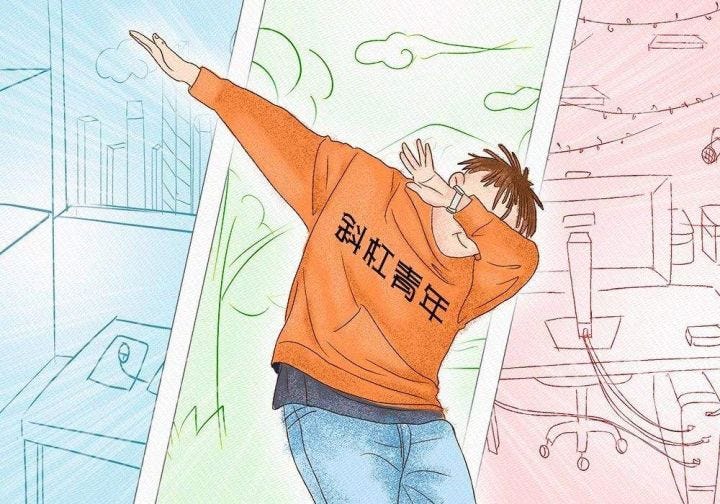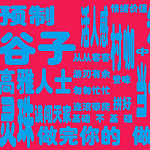Welcome to RealTime Mandarin—a multimedia resource to immerse you in the latest Chinese language trends, inspire you to practice and improve your Mandarin every week, and empower you to communicate with confidence.
Subscribe now to get the next issue straight to your inbox!
80 million people in China aged between 20 and 35 have a side-hustle or side-gig, according to 2019 data.
There’s probably more like 100 million of them now.
In Chinese a side-hustle is a:
副业 fù yè - ‘secondary business’, or side-line
B面生活 bí miàn shēng huó - your ‘B life’
‘Slash Youth’, or 斜杠青年 xié gàng qīng nián, is another way to describe a young side-hustler in China.
This phrase was first coined by New York Times writer, Marci Alboher, in her book One Person, Multiple Careers, published in 2007.
In 2016, ‘Slash Youth’ started to gain traction in China, which was further popularised by the 2018 TV series, Mr. Right (恋爱先生 liàn ài xiān sheng).
Mr. Right follows the story of a young doctor, Chéng Hào 程皓, who spends his spare time on a side-hustle helping others get the girl of their dreams, despite having never been in love himself.
In 2018, with the popularity of the TV series Mr Right, ‘Being a Slash Youth free from the pressures of life’ became a thing.
2018年,随着电视剧《恋爱先生》热播,“摆脱生活压力,做个斜杠青年”成为潮流。
Being a Slash Youth used to be a ‘nice to have’ way to refer to yourself. But in the last two years it’s become a ‘must have’ (刚需 gāng xū) for millions of anxious young people across China facing possible lay-offs, stiff competition at work, and increasing costs of living.
For Slash Youth, full-time employment can wait, work should be flexible, and side-hustling is a must.
斜杠青年,慢就业,灵活就业,副业刚需
Note: 慢就业 màn jiù yè means ‘employment can wait’, not ‘slow employment’. Zoe discusses this in the podcast.
Being a Slash Youth is about more than just making a bit of extra cash:
Sometimes it is also a way to relieve the stress of high-pressure work by taking time out to do what you are good at and enjoy, while exploring a new area.
有时,在高压的工作之外,能够抽出些时间做自己擅长和喜欢的事,探索一个未知的领域,也是一种缓解压力的方式
But for an increasing number of side-hustlers, though, the main driver is security:
Sometimes, a side-hustle can optimise income structure, expand network, help protect against risks, and gain a sense of security in an uncertain workplace.
有时,做一份副业,能够优化收入结构、拓展人脉,帮助他们在不确定的职场中,提高抵御风险的能力,多获得一份安全感。
Favourite Five
1. 搬砖 bān zhuān
moving a brick; work hard at your day job
在格子间里“搬完一天的砖”,在其他的时间里,他们可能是知名美妆博主、网文作家、剧本杀创作者 - After working hard all day in their day job, in their own time they might be a famous make-up blogger, an online writer, or a creator of Live Action Roll Play (LARP) scripts.
More: we first explored China’s ‘script killing’ 剧本杀 jù běn shā - abbreviated as LARP in English - craze in October last year.
2. 两栖 liǎng qī
amphibious; working two jobs
以80后至95前人群为主,高学历人群占据“两栖”青年的主流 - It’s mainly the well-educated people born between 1980 and 1995, who are the primary group of the ‘amphibious’ young side-hustlers.
3. 元能力 yuán néng lì
ability to learn other skills; essential soft skills
一旦以“元能力”为核心的行业陷入“内卷”,“斜杠青年”便会陷入相同的困境 - As soon as industries that heavily rely on essential soft skills become overly competitive, China’s ‘Slash Youth’ also fall into difficulty.
4. 技多不压身 jì duō bù yā shēn
having too many skills is not a bad thing
在现实生活中,也确实有越来越多年轻人开始践行“技多不压身”这句老话 - In real life, there really are more and more young people who are starting to put into action the old Chinese saying: ‘having too many skills is not a bad thing’.
More: 技 jì (skills) can also be replaced with 艺 yì (art). This is a proverb 谚语 yànyǔ, which can also be written as a longer phrase: 技多不压身, 艺高人胆大 jì duō bù yā shēn, yì gāo rén dǎn dà.
5. 人类的悲欢并不相同 rén lèi de bēi huān bìng bù xiāng tóng
everyone’s pain is different
俗话说,人类的悲欢并不相同。搞副业这事儿,更是几家欢喜几家忧 - As the Chinese colloquial phrase goes, ‘People’s emotions are all different’. Doing a side-hustle is even more so: some people love it, some people hate it.
Background: this phrase is from Lu Xun, from his short story 而已集 ér yǐ jí.
More: there’s a bonus phrase in here: 几家欢喜几家忧 jǐ jiā huān xǐ jǐ jiā yōu - some people love it, some people hate it.
Consuming the Conversation
Useful words
瘦 shòu
thin; not profitable
“网上的单子,越来越瘦,真快干不起了 - The work she picks up online is becoming less profitable. It’s almost impossible to do it (at a profit).
标配 biāo pèi
standard
“斜杠”失去了光环,而逐渐成为年轻人生活的“标配” - ‘Slash’ has lost its allure, and is gradually becoming the ‘standard’ for young people.
爆棚 bào péng
busting, loud, busy
一想到将来跳槽时可能被问到恋爱状态、结婚计划等问题时,便“压力爆棚” - As soon as I start to talk about quitting my job, I might be asked about my love life, and plans to get married, bringing with them all the additional pressures.
Note: From Cantonese, normally means something like 热闹 rè nao - a busy and busting venue.
生路 shēng lù
‘life - way’; livelihood
其中许多人,选择了开展副业来另谋“生路” - This includes many people who have chosen to start a side-hustle, as a new way to support themselves
弯路 wān lù
tortuous path; detour
副业是年轻人搞钱的一条弯路 - The side-hustle is a difficult path on which young people make extra money.
避雷 bì léi
stay out of trouble
最多的还是热心的“副业失败者”发布的避雷经验贴 - Most of the posts are from those who enthusiastically share their experiences of failure in the ‘Failed Side-hustlers’ group.
More: we discussed this before in June this year.
火苗 huǒ miáo
flame; hope
任何一个小阻碍,都有可能浇灭一位职场人的副业小火苗 - Any small obstacle might extinguish the flame of wanting to start a side-hustle in the mind of an employee.
盼头 pàn tou
hope
如果能在一地鸡毛的日子中,找到一点儿生活的盼头,就不算亏 - If they can find a little bit of hope in an otherwise chaotic / dull day, then this is not making a loss.
More: 一地鸡毛 yī dì jī máo - chaotic, a mess. Last discussed in January this year.
Three character phrases
烟雾弹 yān wù dàn
smoke bomb; something that acts as a disguise or to belie the reality















